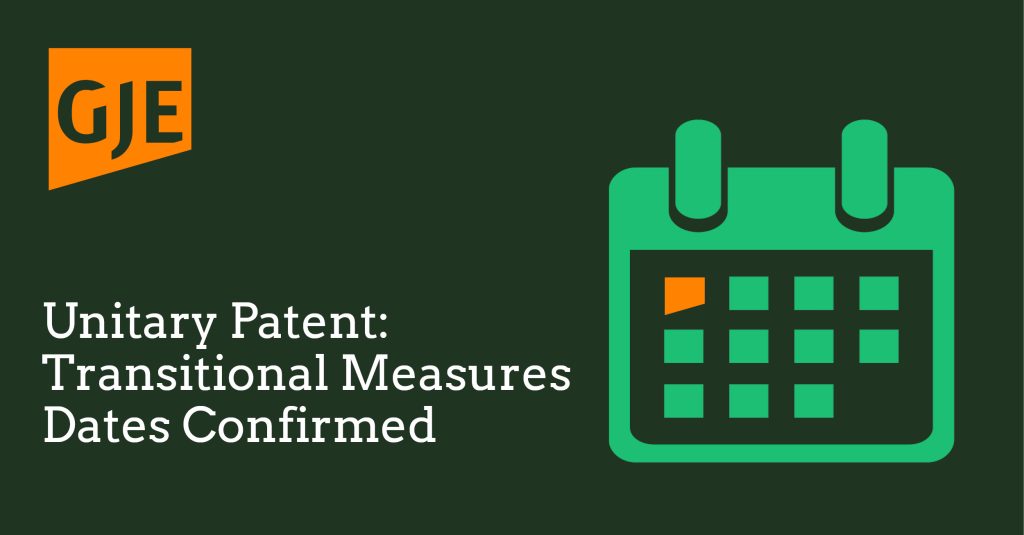The UK has supported the creation of the Unified Patent Court (UPC) and Unitary Patent (UP) since its inception. In recent years, the government has fought for London to have part of the main branch of the Court, provided much of the backing and development for the UP infrastructure and has ratified the necessary laws. Moreover, many of these steps have taken place since the referendum in which it was decided that the UK would leave the EU. Therefore, it may seem initially surprising that on 27 February the UK Government confirmed to a journalist that the UK would no longer seek to take part in the UP and UPC systems. The reason given is that the UPC is at odds with the desire of the Government not to be bound by EU law, which if the UK had continued to participate, was an inevitability due to the structure of the Court.
While this apparent volte face is not a surprise in view of the UK Government’s consistent approach on the UK not being bound by EU law post Brexit, we now need to look at what effect this will have on the UPC and UP systems and how UK businesses and practitioners such as patent attorneys and solicitors may be affected.
The first matter to point out is that the UPC and UP systems are not operational yet. While their eventual existence is affected by this Government statement, the status quo has not changed and all sectors can continue as they currently are. Additionally, the good news for UK businesses is that even if the UK is not part of the UPC and UP systems, they will not be stopped from utilising those systems as and when they are operational. The only limitation is that the UPC and UP will not extend any direct influence to the UK. Some will celebrate this; others will not.
Turning to the effect this has on getting the UPC and UP systems up and running, the Court is governed by the Agreement on a UPC (UPCA). This is an international treaty established by various EU regulations, that covers all aspects of managing and setting up the UPC along with the powers of the Court and proceedings before it. For the Court to start operating the UK, France and Germany were required to ratify the UPCA along with ten other countries that had signed up to the UPC. The UK was picked out, along with France and Germany, as the three EU member states in which the highest number of European patents were made enforceable by validation into those countries in 2012. With the UK no longer involved, either The Netherlands or Italy will likely be promoted to this group. Since each of The Netherlands and Italy have ratified the UPCA, this will not further delay the UPC from starting to operate. The current cause for delay is a challenge that is ongoing before the German constitutional Court, which is delaying the German ratification. In short, this means that regardless of the position of the UK, the UPC cannot go ahead as yet.
Complications will arise due to a requirement written into the UPCA that the central division of the Court has a seat in London. The London seat is set to handle “human necessities”, chemistry and metallurgy cases; in other words, pharmaceutical cases.
With the UK not part of the UPC, there may be a desire to move the London seat of the Court back into an EU country. The London seat of the Court can only be moved by amending the UPCA, which may prove difficult. While replacing “London” in the agreement with a European location may look like a simple adjustment, practically speaking this may not be easy to achieve. This is because, the UPCA is an international treaty with a number of countries involved and any changes to the UPCA will need to be agreed by all the remaining countries. Each of these countries will have their own desires and priorities, and there are already known to be some contentions over various other aspects of the UPCA, which could then be open to discussion.
One matter that may be missed in the flurry of articles this article is adding to, is that European Patent Attorneys “who have appropriate qualifications such as a European Patent Litigation Certificate”[1] will be able to represent rights holders before the UPC. This allows for patent attorneys who are European qualified but not (necessarily) nationally qualified to represent rights holders before the UPC. Under the current Rules[2] for at least the first year during which the UPC operates, patent attorneys with the UK national qualification are considered to hold suitable alternatives. This means that under current rules, dual qualified UK and European patent attorneys will be able to act before the UPC should it still go ahead.
One sector of the legal profession that has been stopped from participating are UK solicitors who would otherwise have been able to act before the Court. This means that dual qualified UK and European patent attorneys will be the only attorneys able to act before the EPO, UKIPO and UPC (and the UK Courts to the extent they are currently able to). This puts dual qualified UK and European patent attorneys in a unique position of being able to represent rights holders within Europe and the UK.
In spite of the difficulties, there appears to be an appetite among remaining countries taking part in the UPC and UP to continue to press ahead. Indeed, the UPC and UP systems are not the first iteration of laws to try to bring about a more harmonised patent system across Europe. However, the UK Government deciding to no longer be part of these systems will limit the systems’ benefits due to the UK’s prominent place in the wider European patent landscape, and will (and has already) lead to a significant amount of commentary as to the effect this will have.
While the fate of the UPC and UP systems currently rests with the German Constitutional Court, the UK no longer taking part could be a fatal blow. Yes, the UPC and UP systems can continue without the involvement of the UK, but there are hurdles that will need to be overcome because of this. Ultimately, those hurdles may diminish the desire of the remaining participants to go ahead with those systems in their current form. Ultimately, the UK’s lack of involvement could stall the new systems irrevocably. Nonetheless, once the initial furore over this change dies down, all eyes interested in the UPC and UP will move back to watching Germany, as has been the case for the last few years.
If you have any questions about the UPC, UP or how Brexit may affect your IP rights, please contact Alistair via email at alistair.holzhauer-barrie@gje.com.
[1] Article 48(2) UPCA
[2] Rule 12, Draft Rules on the European patent Litigation Certificate and Other Appropriate Qualifications pursuant to Article 48(2) of the Agreement on a Unified Patent Court.

